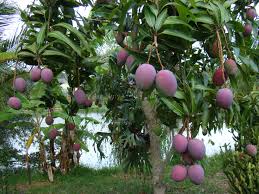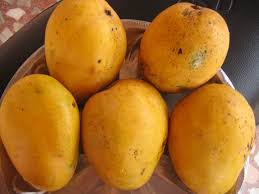What makes mango the most eaten fruit?« Back to Questions List
|
The mango, a tropical food native to South Asia is the most commonly consumed fruit around the world. There are more than 2,000 varieties of mangoes. They are consumed as juices, pies, chutneys and dried cereals. Mangoes contain vitamins C and E, beta carotene, niacin, iron and potassium. Researches have proved that intake of mangoes fights obesity, diabetes and heart ailments. The mango is a major source of vitamins, proteins, nutrients, fiber and antioxidants. Zeaxanthin, an antioxidant in mangoes supports eye health by filtering out blue light rays. The nutrient beta-carotene prevents developing asthma. Beta-carotene acts against prostate cancer. Antioxidant compounds prevent many types of cancers including colon, breast and prostate cancers. These antioxidants include quercetin, isoquercitrin, astragalin and fisetin. Vitamin K present in mango improves calcium absorption by body which is essential for bone health. One cup of mango contains 3 grams of fiber and high consumption of fiber diets reduce blood glucose levels in type 1 diabetics. Mangoes normalize insulin levels. The fiber and water content in mangoes prevents constipation. The enzymes in the fruit break down protein that helps digestion. The fiber, potassium and vitamin content in mangoes decrease chances of heart disease. Fiber, pectin and vitamin C reduce LDL, the bad cholesterol. Increased potassium intake and decreased sodium intake is essential to keep heart diseases away. Vitamin A in mango maintains hair moisturized and supports growth of tissues, hair and skin. The good level of Vitamin C and Vitamin A in the fruit facilitates a healthy immune system. Intake of mangoes helps in maintaining alkali reserve of the body as the fruit contains tartaric acid, malic acid and citric acid. Mango juice mixed with water and honey cool down body instantly and avoid heat stroke. The fruit contains glutamine acid which an important protein that enhances concentration and memory. The rich iron content in the fruit is a natural solution for anemia. The phytochemicals such as triterpene and lupeol have biological impacts. Fruits: Different types and their features What is the Great Barrier Reef?How is Dystopia connected to World Happiness Report? |


